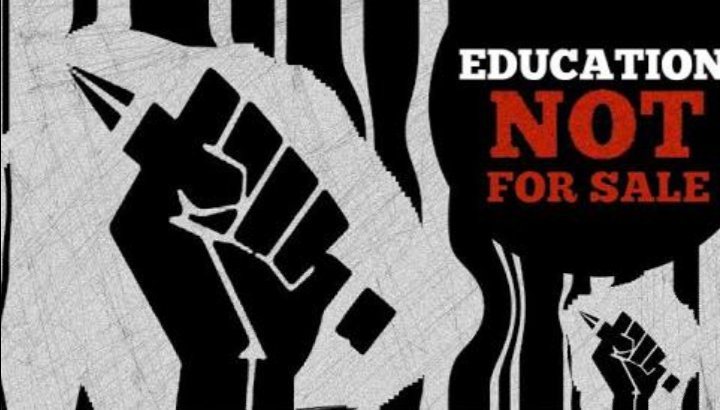Fee Hikes, Coercive Tactics, and the Erosion of Trust – How Kashmir’s Private Schools Are Failing Students and Parents
The Broken Promise of Education in Kashmir
By: Javid Amin
Srinagar 05 April 2025: In the valleys of Kashmir, education was once a beacon of hope—a pathway to empowerment in a region marred by conflict. Today, that beacon is dimming. Private schools, once trusted allies in nurturing futures, are increasingly seen as profit-driven enterprises. Parents narrate horror stories of sudden fee hikes, unexplained charges, and emotional coercion. “They’re holding my child’s future ransom,” says Rafiq Ahmad, a farmer from Pulwama. This article investigates how Kashmir’s education system became a marketplace and what it will take to restore its sanctity.
Historical Context: Education in Kashmir – From Pride to Profit
Post-1947, Kashmir prioritized education, building schools even in remote villages. Government institutions were pillars of accessibility. However, the 1990s conflict disrupted this ecosystem. As public schools struggled, private institutions emerged, promising “quality” education. Over time, many shifted focus from pedagogy to profit, capitalizing on parents’ desperation for stability. Today, 65% of Kashmiri students attend private schools, creating a monopolistic environment ripe for exploitation.
The Fee Hike Epidemic: Who’s Profiting?
- The Alarming Statistics: Data from the Jammu & Kashmir Private Schools Association reveals a 200% average fee increase since 2010. Inflation during the same period? Just 80%. Schools blame “infrastructure upgrades” and “teacher salaries,” but audits are rare.
- Case Study: Shazia’s Story: Shazia, a widow in Srinagar, works three jobs to afford her son’s school fees. “Last year, fees jumped by 30%. When I begged for mercy, they suggested my son drop out,” she says. Her story mirrors thousands.
- Administrative Justifications: School owners argue, “Quality demands resources.” Yet, few disclose financial breakdowns. Parental committees, mandated by law, remain symbolic.
- Exams as Extortion: Holding Results Hostage
- The “Pay-to-Know” Policy: Schools now conduct internal exams, withholding results until fees are cleared. Legal experts call this a violation of the Right to Education Act, but enforcement is absent.
- Parental Anguish: “My daughter scored 95%, but they refused to tell her until we paid,” shares Abdul Qadir. “She cried for days, thinking she’d failed.”
- Psychological Toll: Child psychologists report rising cases of anxiety and depression. “Students internalize guilt, believing they’re burdens,” says Dr. Ayesha Khan.
- The Ripple Effect: Societal Consequences
- Cycle of Debt: Families take loans, sell assets, or cut healthcare expenses. Education becomes a debt trap, not an investment.
- Dropouts and Child Labor: Boys as young as 12 work in shops; girls are pulled into early marriages. The dropout rate has surged to 22%, per 2023 state data.
Legal Frameworks: Loopholes and Lip Service
- The J&K Education Act: While the Act caps fee hikes at 8% annually, schools exploit loopholes via “development fees” and “optional” charges.
- Regulatory Failures: The State Commission for Protection of Child Rights (SCPCR) receives 50+ complaints monthly but lacks authority to penalize schools.
Community Resistance: Parents Fight Back
- Grassroots Movements: WhatsApp groups like “Kashmir Parents’ Voice” organize protests. In 2022, a 1,000-parent march in Anantnag forced three schools to reverse hikes.
- Success in Sopore: A parent collective sued Green Valley School for illegal charges. After media coverage, the school refunded ₹12 lakh.
Solutions: A Multi-Stakeholder Approach
- Policy Reforms: Cap all fees (including hidden charges) at 10% of a school’s operational cost. Mandate annual audits and public financial disclosures.
- Alternative Models: Kerala’s “neighborhood school” system, where communities co-manage institutions, could decentralize power.
- NGO Interventions: Organizations like Save the Children sponsor 500+ students annually, but scaling requires government partnership.
Global Lessons
- Finland: No private schools; 100% state-funded, equitable education.
- Rwanda: Post-genocide reforms prioritized free primary education, boosting enrollment by 70%.
What Can Be Done?
Experts suggest several measures to address these issues:
- Regulation of Fees: The government must step in to regulate school fees and ensure transparency in fee structures.
- Support for Low-Income Families: Subsidies or financial aid programs can help families afford quality education without compromising their financial stability.
- Accountability for Schools: Schools should be held accountable for their practices, with strict penalties for exploitative behavior.
- Community Action: Parents and local communities can unite to demand fair treatment and advocate for reforms in the education system.
Bottom-Line: Reclaiming Kashmir’s Future
Education must return to being a right, not a commodity. Parents, policymakers, and activists must unite to legislate, litigate, and liberate. As educator Malala Yousafzai said, “One child, one teacher, one book can change the world.” Kashmir’s children deserve that chance.



